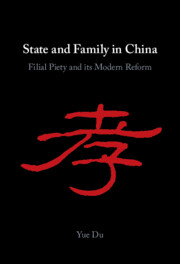Introduction
Filial Piety beyond Confucianism
Published online by Cambridge University Press: 29 October 2021
Summary
On December 25, 1815, Wang Dacai, a barber from Guangshun prefecture, Guizhou province, killed himself by stabbing an iron rod into his throat. This suicide was a result of the regret (huihen ziqiang biming) Dacai felt after hearing that his son, the 12-sui Wang Hebao, would be sentenced to death because the boy had slightly pricked the skin around his father’s throat (taoqi houxia fupi) under the father’s order. On December 17, Wang Dacai was caught committing illicit sex. The adulteress’s family tied Dacai to a tree, planning to send him and the adulteress to the authorities later. Wang Dacai ordered his son, who visited him, to slightly injure him in the hope of using a countersuit to threaten his captors into dropping the adultery charge. Unfortunately for Dacai, two passers-by caught sight of the whole scene, and reported it to the local authorities. After his injury was examined, Wang Dacai was released. His son was kept in official custody and sent to the provincial capital for trial. Eventually, the son was sentenced to beheading subject to review at the autumn assizes (zhan jianhou), due to clemency directly from the emperor.
- Type
- Chapter
- Information
- State and Family in China , pp. 1 - 20Publisher: Cambridge University PressPrint publication year: 2021

